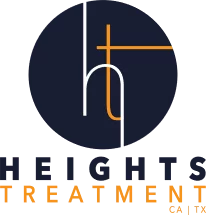Table of Contents
DBT (dialectical behavior therapy) is a technique therapists often use to help people with certain mental conditions. While this technique was originally developed to encourage mental health improvement, it is also helpful when treating addiction.
In this article, we’re taking a closer look at DBT for addiction.
DBT For Addiction
Addiction has a long history of taking over lives and refusing to give them up. Like the terrible villain it has become in many people’s lives, addiction grips people in a stranglehold and squeezes their life out. After weeks, months, and even years under the influence, joy begins to vanish, and most emotions only ever come forth when drugs are involved.
In the beginning, drugs can be a great thing subjectively. They produce a short-term euphoria that allows us to withstand absolutely anything – any physical or emotional pain becomes meaningless in the face of a shot of heroin or some amphetamines or in the middle of a drunken stupor. But as time goes on and things get worse, people begin to take drugs not because of how it makes them feel but because of how they feel without the drugs.
Breaking that habit – truly tearing away from addiction – takes time and commitment. But most importantly, it requires the right tools. For a while now, therapists have recommended that addicted individuals look towards DBT as an effective method for getting back the control they need, especially after rehab with the stress of living in the real world and staying sober.
What Is DBT?
DBT, dialectical behavior therapy, is an offshoot of the highly popular and highly effective cognitive-behavioral therapy developed decades ago to combat depression. Like CBT, DBT has evolved since its original usage to help patients dealing with anxiety, depression, addiction, and other mental health issues. However, originally, DBT began as a way to help people diagnosed with borderline personality disorder. Even today, it continues to be the nearly unanimously best way to deal with BPD.
Dialectical behavior therapy originated in the 80s when psychologist Marsha Linehan decided that cognitive behavioral therapy wasn’t addressing her patients’ needs. She decided that, as useful as it was, something was missing in the blueprints of CBT that was necessary for those suffering from the symptoms of a personality disorder, particularly extreme mood swings and constantly contradicting views (in other words, having a constant personal crisis).
DBT emphasizes dealing with hyper-reactions, particularly in social interaction – people dealing with borderline personality disorder often have problems dealing with interactions with others and tend to experience intense surges of varying emotions in a way that makes it hard to deal with constant, normal interactions. Thus, DBT focuses on teaching people how to deal with such drastic changes in mood and emotion and teaches people how to stop perfectionism and instead embrace certain things in life.
How DBT And CBT Differ
Cognitive-behavioral therapy functions under the simple premise that thoughts, feelings, and actions are all inexplicably linked and work in harmony. As such, our actions influence our thoughts and emotions, and our thoughts can influence our emotions and, thus, our actions.
CBT focuses on helping patients use affirmations and various exercises to change how they think and act to influence their feelings. In other words, it’s a form of “fake it ‘till you make it,” teaching people how to suppress depressive thinking and anxieties and instead bring forth a more confident voice.
DBT doesn’t force change in quite the same way. Instead, it leaves room for opposing views and emotions to co-exist rather than teaching a patient to suppress one with the other.
Dialectical Behavior Therapy In Addiction
The term “dialectical” means finding a shared truth between opposites and typically can be seen in the context of debates, where two sides of an argument seek common ground. That is the premise of this type of therapy, and it works well in conjunction with addiction. People who struggle with their addiction are often at odds with themselves and tend to have trouble with the part of themselves that seeks to continue their destructive habits. Before they can learn to overcome that part, DBT helps their first move on past it by discovering how it relates to them.
This is the internal struggle of acceptance and change – and finding a balance between the two where you can be healthy and happy.
More Than Thoughts
Addiction is a mental health problem but also a brain disease. Tackling something as volatile as addiction requires a wholesale approach, an attack from all angles – you can’t just walk into rehab, go through the program, then pop into a 12-step program and expect it to work every time. Some people respond phenomenally under the 12 steps. Others don’t and need methadone or suboxone to deal with their addiction. Some people prefer to use self-help books and the support of only their closest friends and loved ones to get through the throes of addiction, while others prefer the openness and emotional support of group therapy and sober living homes, where people come together to better themselves collectively and inspire one another to be more, rather than less.
In that vein, it’s important to realize that as effective as DBT may have proven to be for many people, that doesn’t make it your specific ticket to happiness or long-term sobriety. It’s an option – and a very good one. But it needs to be part of a larger program involving other things that help tackle addiction and improve long-term recoveries, such as exercise, diet, stress management, hobbies, a decent job, and good relationships.
DBT improves above most other treatments by teaching you to accept flaws. Relapse, for example, is relatively common in addiction – yet it is too often seen as some failure of recovery when research shows that it is part of the process. As addiction has been labeled a chronic issue, relapse rates are known to be so high that almost half of everyone struggling with drugs will, at some point, relapse, even if they want to get better with every fiber of their being.
The key to getting better is to get back onto the program after a relapse and continue despite it rather than being demoralized by the experience. DBT helps people move on past flaws and issues to achieve inner peace, thereby removing the anxiety on which addiction feeds. Making relapses less likely to end your journey can help you finally reach the point where they disappear and become irrelevant.
The Heights Treatment Editorial Guidelines
There is a vast amount of misinformation online especially as it relates to health & wellness. We have made it our mission at The Heights Treatment to provide accurate, medically sound content that has been medically reviewed by a doctorate level clinician so that you can trust the information contained within our website.





